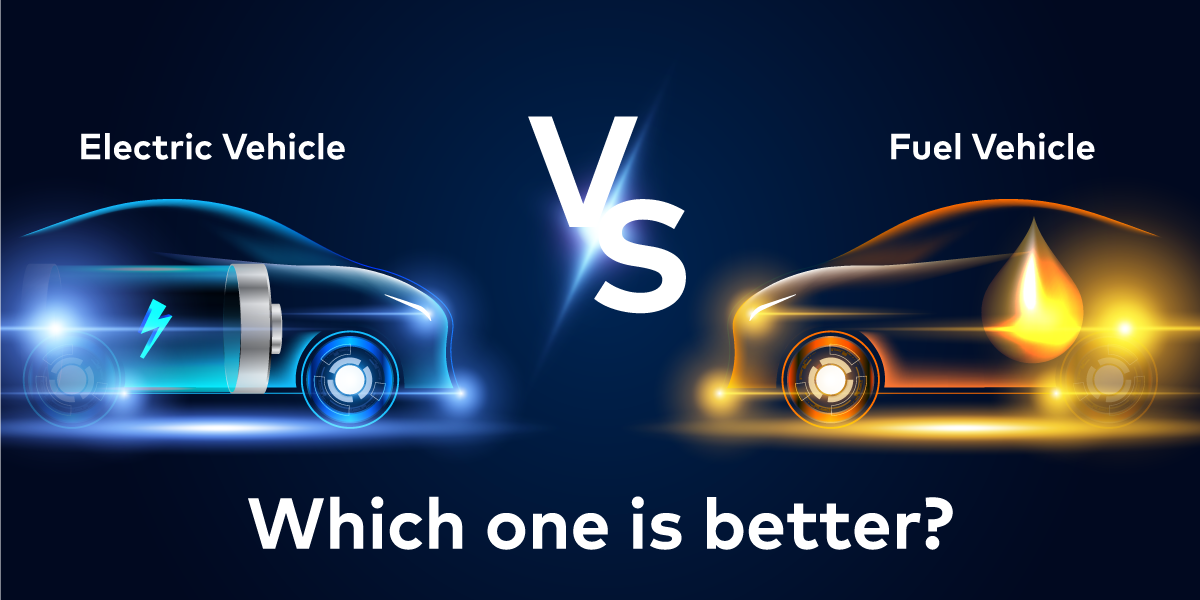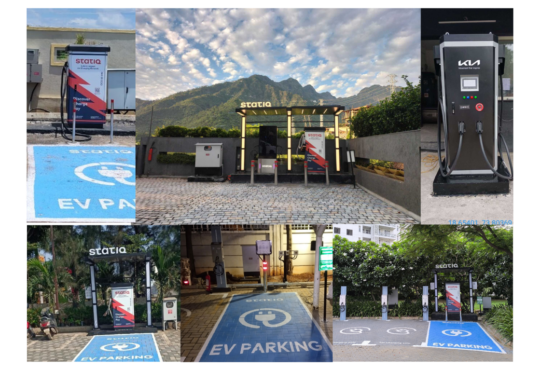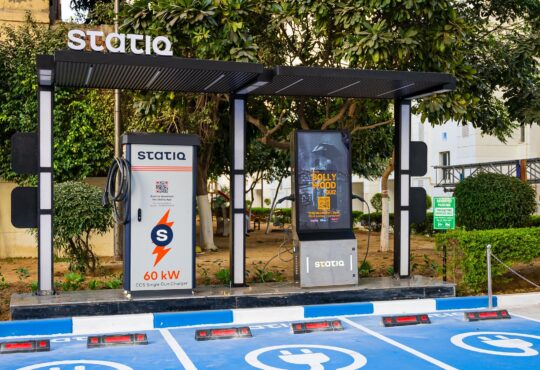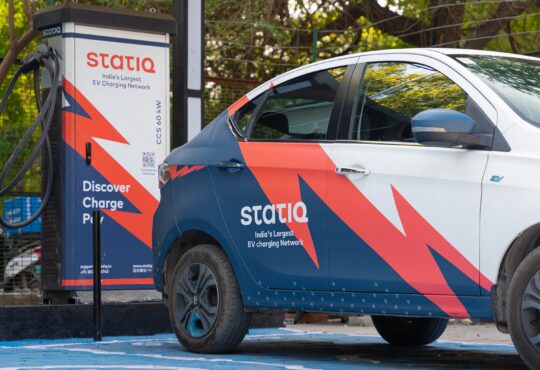
Electric Vehicles v/s Fuel Vehicles: Which One Is Better?
Technology has simplified the lives of humans for centuries. The automobile industry is one such domain that got complete transformation with the advancement of technology. Started with steam-powered vehicles, then petrol/diesel engine vehicles, CNG and hybrid, and now electric vehicles (EVs), which gained enough popularity in the past some years.
Even the Indian government has introduced the FAME scheme to encourage EVs in India through subsidies and tax exemptions. But there is still a common question that we all come across in our daily life: “which one is better, electric vehicles or fuel powered vehicles?” Answering this is not as tricky as “chicken and Egg.”
In this blog, we will try to understand the difference between electric and petrol/diesel vehicles, commonly known as ICE vehicles. We will also explore which vehicle is better based on various parameters that will also help you to decide which vehicle you should buy if you are looking to buy a new car, so stick with us, and let’s dive into it.
Pollution Pollution… Is There Any Solution?
While you will be thinking about what a kiddish heading it is, let me tell you this is the main force behind this whole idea of electric vehicles and their popularity among the masses.
Yes, you heard right!
Transportation is one of the major contributors to greenhouse emissions and is responsible for air pollution. The majority of transports consist of internal combustion engine (ICE) vehicles which pose a serious threat to our planet because they emit pollutants such as dioxides, gases, and fine particles which cause various respiratory diseases.
That’s the reason EVs gained popularity as people look for environmentally friendly transportation options. They run on rechargeable batteries and emit zero greenhouse gases, making them a more sustainable option than fuel vehicles.
Electric Vehicles v/s Fuel Vehicles
Here are the following comparisons based on various parameters that will help you to choose your next vehicle.
Environmental Impact

EVs are better for the environment than fuel vehicles. As per the research, EVs emit less than half the greenhouse gases compared to fuel vehicles, even when considering the manufacturing of batteries. Additionally, the production of electric vehicles is becoming more sustainable as the use of recycled materials is becoming more common.
Cost

EVs are more expensive to purchase than fuel vehicles, but they cost less to operate and maintain. According to Niti Ayog, electric vehicles can save $60 billion in fuel costs by 2030. Additionally, the maintenance cost of electric vehicles is lower as they have fewer moving parts and require less frequent maintenance.
Performance

When it comes to performance, electric vehicles have a significant advantage. They offer instant torque, allowing for quicker acceleration and a smoother ride. Additionally, EVs have a lower center of gravity, making them more stable and safer to drive. However, fuel vehicles still have a longer range than electric vehicles, and refueling is quicker than recharging.
EV Infrastructure

The availability of electric vehicle charging stations is a significant concern for electric vehicle owners. While the number of EV charging stations is increasing rapidly, they are not yet as widely available as fuel stations. However, the situation is improving as more public and private entities invest in charging stations. Fuel vehicles have an advantage in this regard, as fuel stations are more widely available.
Safety

Both electric and fuel vehicles have safety features that protect drivers and passengers in the event of an accident. However, there are some risks associated with lithium-ion batteries in electric vehicles, such as the potential for thermal runaway, which can cause the battery to overheat and catch fire. On the other hand, fuel vehicles carry the risk of explosions and fires in case of a collision. But now scientists are using more advanced technology to make the EV batteries cooler even in higher temperatures to make them more feasible in warm climate regions.
Convenience

The convenience of owning an electric vehicle depends on the availability of EV charging stations and the vehicle’s range. Refueling a fuel vehicle is quicker than recharging an electric vehicle, and fuel vehicles have a longer range. However, electric vehicles can be charged at home, which can be more convenient than driving to a fuel station. Additionally, with the increasing availability of charging stations, charging an electric vehicle is becoming more convenient.
Which One Is Better?
Electric vehicles and fuel vehicles both have their pros and cons. But EVs are better for the environment and cost less to operate and maintain, while fuel vehicles have a longer range and refueling is quicker. The availability of charging stations and the convenience of owning an electric vehicle is improving rapidly.
With more investment in EV charging infrastructure and improvements in battery technology, electric vehicles are becoming more attractive as a viable alternative to fuel vehicles. However, the future of transportation may not be about choosing between electric or fuel vehicles but rather finding ways to combine the strengths of both to create a more sustainable and efficient transportation system.
Also read, How Can You Earn With Statiq’s EV Charging Station Franchise Program?



